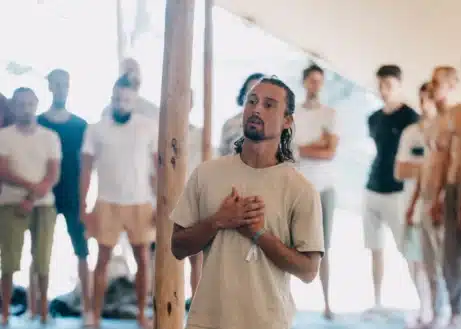Shaman, mentor, scientist: what do they have in common?
Three Paths to One Goal: How Shamans, Mentors and Scientists Help People Understand the World and Live a Fulfilled Life
The desire to understand the world and oneself
Since time immemorial, people have sought to understand the world around them and their own inner world. They have sought answers to questions that are just as relevant today: who are we? What is the meaning of our life? How can we achieve harmony, happiness and contentment?
Three groups of people took up this challenge in different ways. Shamans through ritual and connection with nature, mentors and coaches through personal development, and scientists through knowledge and analytical thinking. Although their methods differ at first glance, their goal is the same – to help people understand reality, navigate it better and find their way to a fulfilled life.
In this article, we will look at these three approaches, explore their differences and overlaps, and show that ultimately they all aim at one thing – a deeper understanding of human beings and their place in the world.
Three different paths to the same goal
Shamans: Guardians of ancient wisdom and connection to the unseen world
Since ancient times, shamans have been the spiritual guides of their communities. Their role has been fundamental – they have not only been healers and mediators between the world of humans and spirits, but also those who have helped individuals find direction in life.
Mentors and coaches: A Practical Path to Personal Growth
While shamans draw on ancient wisdom, mentors and coaches bring a more structured and pragmatic approach. They draw on psychology, personal development and experience to help others find their inner potential and direction.
Mentoring has always existed – in ancient Greece, mentors played a key role in passing on knowledge to younger generations. Today, mentoring has evolved into personal and professional growth, while coaching focuses on helping individuals achieve goals through questioning, self-reflection and changing mindsets.
For example, a coach can help someone who is feeling stagnant in life by asking the right questions that lead to understanding internal blocks and finding a new direction. This approach is mindful and focused on practical steps that lead to long-term change.
Scientists: An analytical view of reality and human behaviour
The third group are scientists who approach the same questions systematically and logically. They investigate how the human brain works, how emotions affect our decision-making, and how knowledge can improve the quality of life.
For example, neuroscience shows that practices such as mindfulness or meditation have a measurable effect on brain structure, reducing stress and improving concentration. Psychology looks at how our thinking and unconscious patterns influence our behaviour.
Many scientific discoveries confirm what shamans and mentors have been saying for centuries – intuition, connecting with emotions and inner work are the keys to personal growth. The only difference is that science works with measurable evidence, while shamanism and coaching rely more on experience.
Similarities and overlaps: Three perspectives, one goal
At first glance, it may seem that shamanism, mentoring and science have nothing in common. But when we look deeper, we find that their approaches overlap more than we might expect.
- Working with the conscious and subconscious mind – Shamans use rituals, coaches use questions, and scientists use psychological experiments, but they all explore how our minds work and how we can work with them effectively.
- Searching for Meaning – Whether a person seeks out a shaman, mentor or psychologist, they are usually trying to understand themselves and find a deeper meaning to their life.
- Influencing Reality – Whether through a change of mindset, spiritual practices or scientific methods, all approaches aim to positively transform a person.
Today, the lines between these approaches are blurring. Modern psychology recognizes the effects of meditation, science is interested in the impact of emotions on health, and coaches work with intuition and archetypes.
Everyone can find their own way
Although shamans, mentors and scientists look at the world in different ways, their mission is the same – to help people better navigate it and live a fulfilled life. Some may find answers in a scientific approach, others in introspective coaching, and still others in spiritual practices.
The important thing is not to reject any of these paths just because they may seem different to us. Each can offer a useful tool for personal growth – and perhaps it is the combination of different approaches that leads to the deepest understanding of who we are.



